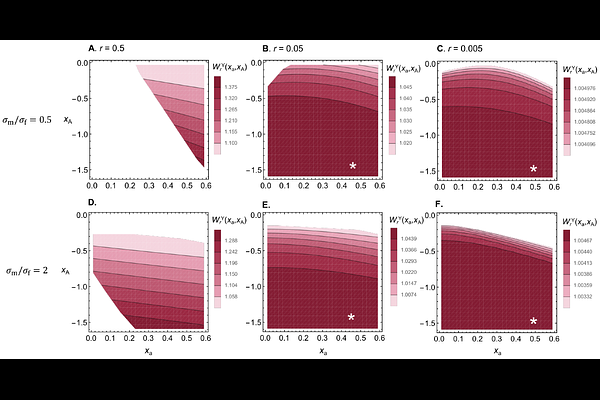Sexual antagonism, mating systems, and recombination suppression on sex chromosomes

Sexual antagonism, mating systems, and recombination suppression on sex chromosomes
Flintham, E.; Mullon, C.
AbstractThe suppression of recombination between sex chromosomes is a widespread feature of genetic sex determination systems. Such recombination arrest is thought to trigger sex chromosome divergence and degeneration and has evolved multiple times in homomorphic ancestors, making it a striking case of convergent evolution. Existing models for the evolution of recombination suppression fall into two main categories: those that rely on the prior segregation of sexually-antagonistic alleles and those that do not. Using mathematical modelling, we compare here the tempo of recombination evolution via the fixation of neutral recombination suppressors with those capturing a locus contributing to a sexually antagonistic trait. We do this for a trait locus with fixed effects and for a locus where allelic effects evolve. We show that sexual antagonism significantly accelerates the substitution of recombination modifiers relative to genetic drift alone, though the strength of this effect depends on the nature of sexually antagonistic variation and on the mating system. Where allelic values at the trait locus evolve, sexually antagonistic selection leads to a pattern of male heterozygote advantage that results in especially rapid substitution by recombination modifiers. We also find that recombination suppression driven by sexual antagonism often arises on the homogametic chromosome, which is not the case when suppression evolves solely due to drift. This pattern is especially strong in XY systems where male reproductive success is highly variable. Our results highlight sexual antagonism as a key driver of recombination arrest, and suggest that reproductive ecology may play a previously underappreciated role in the evolution and stability of sex chromosome systems.